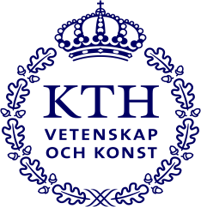Open call: Summer School in Anthropocene Histories

Open call to participants from across disciplines for a Summer School in Anthropocene Histories, August 25-28, 2025. Organised by the Center for Anthropocene History at KTH, and the European Society for Environmental History.
The European Society for Environmental History (ESEH) and the Centre for Anthropocene History at KTH Royal Institute of Technology are inviting applications for the 2025 ESEH Summer School to be held in and around Stockholm on the topic of Anthropocene Histories.
The Anthropocene is not just a geochronological epoch to be defined by the International Commission on Stratigraphy. It is a state of the world where the human and the natural intersect so profoundly that it has started to impact the workings of our planet. The anthropogenic environmental changes have acquired historical agency on the planetary level. Thus, exploring and writing Anthropocene histories is a call and attempt to mend the longstanding separation between human and Earth history and engage seriously with the natural and the material in various ways and formats. While science can identify geophysical and biogeochemical changes, it is history that connects the rapid planetary changes with the explanatory dynamics of human societies and asks how and why such geological records have emerged in the first place.
This Summer School is intended for doctoral students in history, STS, philosophy, sociology, and neighboring humanities disciplines working on the history of anthropogenic environmental changes that have impacted Earth processes on a planetary scale without necessarily confining themselves to the geological definitions of the Anthropocene. Together, we will discuss how Anthropocene Histories can and should be written and what are the sources and methods that allow historians to account for the elemental materiality in their writing. Possible topics include, but are not limited to, the following:
- Anthropocene governance – resources, extractivism, politics and justice;
- Histories of Earth elements and spheres: hydrosphere (oceans and terrestrial water), minerals (geosphere), cryosphere (ice, snow, permafrost), biosphere (multi-species history), atmosphere (air) and supra-atmospheric space;
- Time, temporalities, historiographical principles of periodisation;
- Modelling and the Digital Anthropocene;
- Material, non-textual sources.
Setup of the summer school
The Summer School is organised by the Centre for Anthropocene History at KTH Royal Institute of Technology and will be held in Stockholm and its picturesque archipelago. The exact location will be announced closer to the date. The teaching faculty consists of teachers from KTH and renowned scholars from other well-known universities.
The Summer School will include lectures, plenary discussions, workshops, hands-on exercises and out-of-classroom learning opportunities. All Summer School participants are expected to submit a written text on their topic in advance and present it at a workshop, followed by feedback and discussion with other participants and lecturers. The accepted Summer School participants will receive the instructions for their presentations in early 2025.
Successful participants will receive a certificate and 5 ECTS.
Eligibility
The Summer School is open to all doctoral students and early post-docs worldwide interested in the above topics. A few places can be given to excellent MA students. The working language of the summer school is English. While the range of topics is potentially wide, we will give preference to applicants who engage with the planetary scale of anthropogenic environmental change and pay special attention to the material, scalar, spatial and temporal aspects of history.
Application
To apply for the summer school, send the following to anthropocene@kth.se :
1) A curriculum vitae (max 2 pages);
2) An abstract of your research topic (max 450 words);
3) A letter of intent motivating how your research pertains to Anthropocene history and how it relates to the planetary dimensions of anthropogenic environmental change. (max 2 pages)
APPLICATION DEADLINE: February 28, 2025.
Cost
The Summer School is free of charge to all participants. All accepted participants will receive full meals and accommodation during the event. We will also cover any eventual charges for local transportation to our different locations. Participants are responsible for their own transportation to and from Stockholm. Limited travel funds are available upon request. PhD students who participate at the ESEH 2025 conference in Uppsala can also apply for the ESEH Travel Grants.
For further information, please contact kati.lindstrom@abe.kth.se
Successful Summer School applicants will be informed by the end of March 2025.
Click here (pdf 231 kB) to Download the call.

